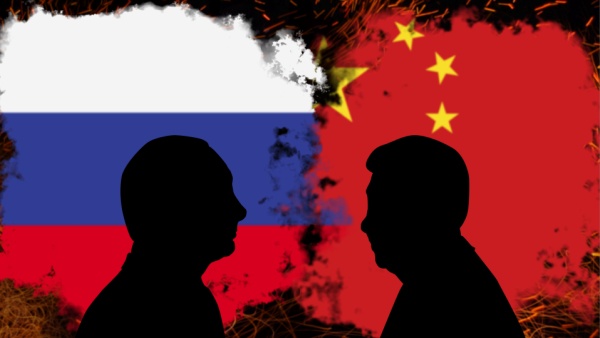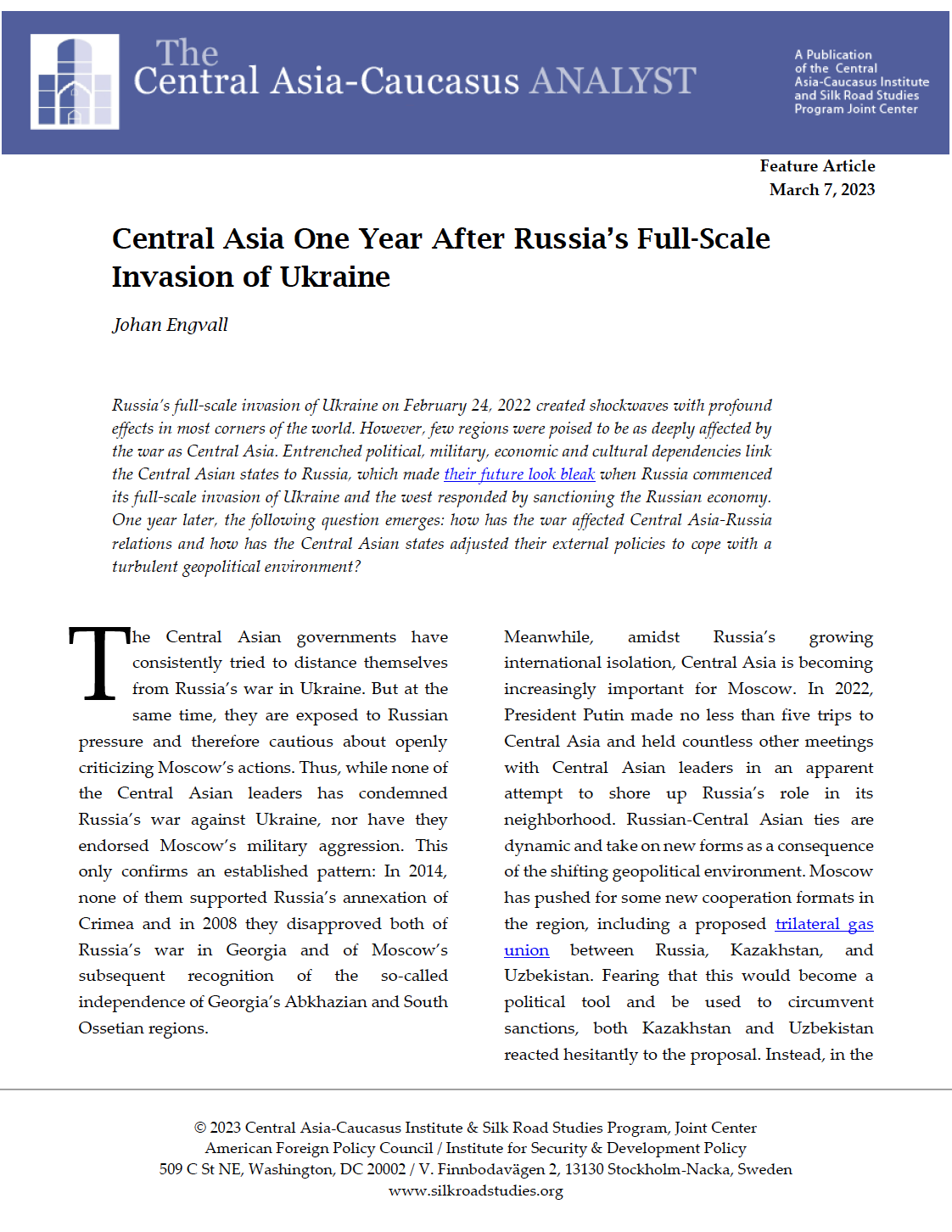Russia’s Retreat and Counterattack in Central Asia
By Stephen Blank
May 9, 2024
Russian power is retreating from the Caucasus and Central Asia, most prominently with the withdrawal of Russian peacekeepers from Nagorno-Karabakh and Washington’s concurrent decision to open discussions with Yerevan on military support. The same process is discernible in Central Asia in the lukewarm support for the war in Ukraine and Kazakhstan’s critique of that war. Other harbingers of the trend are the gradual erosion of Russian language use and China’s dominance in regional finance, trade, and investment. Nevertheless, Moscow still deploys substantial leverage over Central Asia and individual states and can conduct purely domestic policies that negatively affect Central Asian governments and citizens. Moreover, recent indicators suggest that Russia is launching a campaign to restore its hegemonic position in Central Asia. Thus, despite the war in Ukraine and the burdens it has imposed, current Russian policies in Central Asia amount to a determined resistance to its equally observable retreat.
Central Asia One Year After Russia’s Full-Scale Invasion of Ukraine
By Johan Engvall
March 7, 2022
Russia’s full-scale invasion of Ukraine on February 24, 2022 created shockwaves with profound effects in most corners of the world. However, few regions were poised to be as deeply affected by the war as Central Asia. Entrenched political, military, economic and cultural dependencies link the Central Asian states to Russia, which made their future look bleak when Russia commenced its full-scale invasion of Ukraine and the west responded by sanctioning the Russian economy. One year later, the following question emerges: how has the war affected Central Asia-Russia relations and how has the Central Asian states adjusted their external policies to cope with a turbulent geopolitical environment?
The "Four-Day War": new momentum for Nagorno-Karabakh resolution?
By Zaur Shiriyev
May 2nd, 2016, The CACI Analyst
In early April, the escalation of hostilities between Armenia and Azerbaijan resulted in a so-called “four-day war”, which was ended by a truce reached under Russia’s auspices. The expectation was that after the end of this short war, international engagement would increase, with the re-energizing of the Minsk Group. But so far, Moscow is the only active party. The Russian Foreign Minister, Sergey Lavrov, is conducting “shuttle diplomacy” between Yerevan and Baku, the results of which will become clear in the coming weeks.







 Book S. Frederick Starr and Svante E. Cornell,
Book S. Frederick Starr and Svante E. Cornell,